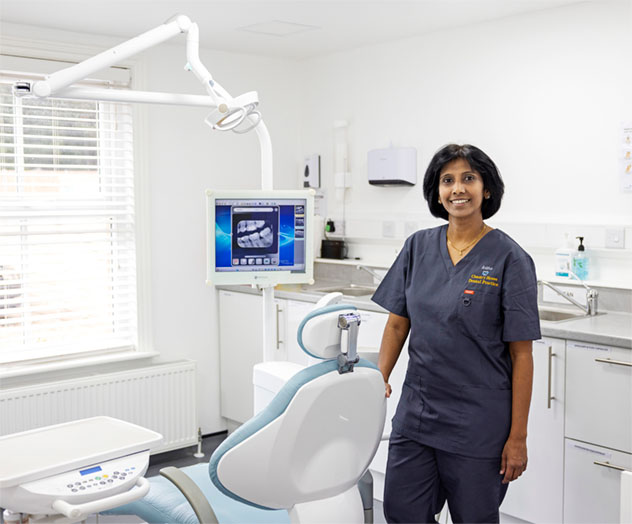I qualified as a dentist in Pakistan in 2008, and in 2011, I moved to the UK with the goal of continuing my dental career here. Understanding the differences in healthcare systems, I enrolled in a dental nursing course to familiarise myself with the NHS, clinical protocols, and local regulations.
While studying, I began working part time at a dental practice in London as a trainee dental nurse. This hands-on experience not only helped me adapt to the UK dental environment, but also gave me valuable insight into patient care and practice operations within the NHS.
Alongside my work and studies, I began preparing for the Overseas Registration Examination (ORE), the mandatory exam for overseas-qualified dentists wishing to practise in the UK. It was a long and demanding journey, but I successfully passed it in 2018, marking a significant milestone in my professional path.
Dentistry in Pakistan and the UK
When it comes to the clinical side, dentistry itself is quite universal - the same procedures, diagnoses, and patient care principles apply. However, the materials, equipment, and regulatory environment can differ significantly between countries.
In the UK, particularly within the NHS, dentistry operates under strict governance. There are clear protocols, regular inspections, legal accountability, and a strong emphasis on patient safety. Regulatory bodies such as the CQC ensure that practices meet consistent and comprehensive standards through routine inspections, regardless of whether a specific concern has been raised.
In Pakistan, regulation is overseen by the Pakistan Medical and Dental Council (PMDC). The PMDC maintains the register of dental professionals and sets ethical and educational standards. While inspections do occur - particularly if there is a concern -the approach is generally more targeted than routine. This reflects a different model of oversight, where regulatory bodies may act in response to specific issues rather than performing standardised, scheduled audits across all practices.
So while the core of dentistry remains the same, adapting to the UK system meant adjusting to a more structured, compliance-driven environment - which is why I took the time to understand local protocols by training and working in the field before pursuing registration.
My experience working as a dentist in Birmingham
Due to my multilingual background, I am able to communicate easily with many of my Pakistani and Indian patients in their native languages, including Urdu. This helps build trust, comfort, and stronger patient relationships - especially for those who may feel anxious or face language barriers. During my time working as a dental nurse, I didn’t have extensive communication with patients, but I occasionally supported them by translating and helping bridge the gap between patient and dentist.
Practising dentistry in the UK has been both rewarding and challenging. The system’s strong regulatory framework, with clear clinical governance and accountability, encourages high standards and continuous professional growth. However, it can also be demanding - especially when it comes to documentation, NHS forms, and administrative responsibilities.
One area in need of reform is the current NHS dental contract, particularly the Unit of Dental Activity (UDA) model. I feel that the system doesn’t fairly reflect the time, effort, or complexity involved in various treatments, which can lead to professionals feeling undervalued. Despite these pressures, I remain committed to delivering the highest standard of care, and I believe the UK system, though in need of updates, provides a strong foundation for safe and effective dental practice.


